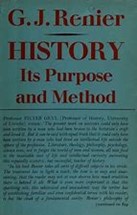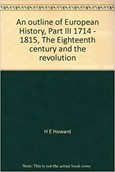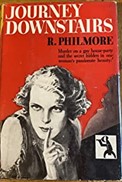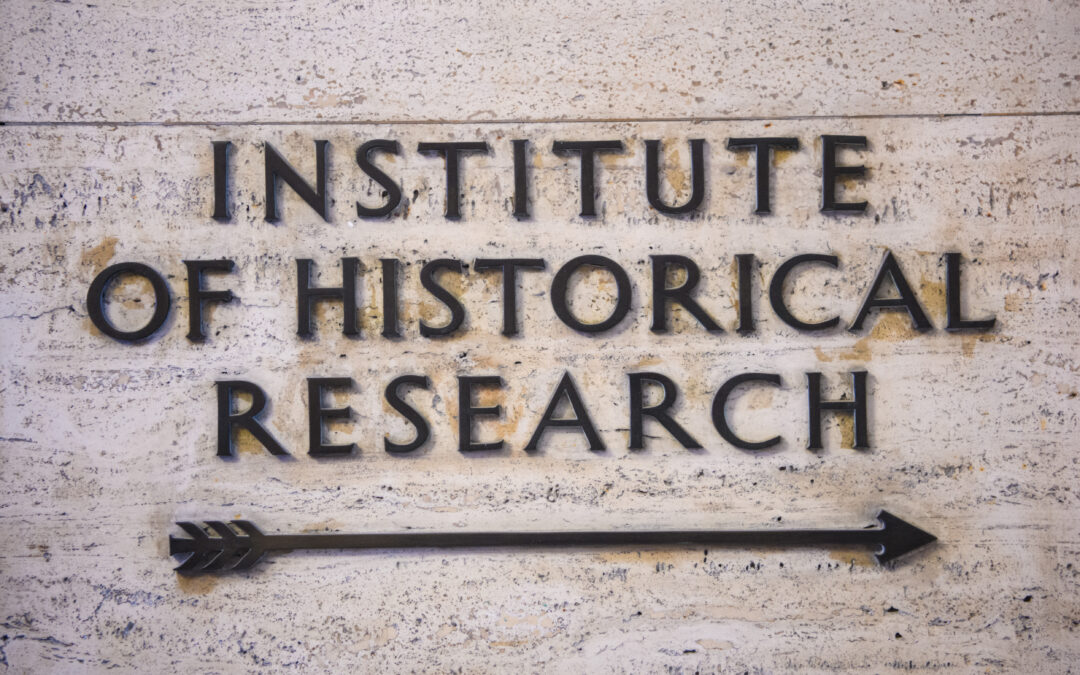In the second of two blog posts for the IHR centenary project From Jazz to Digital: exploring the student contribution at the IHR, 1921-2021. Current IHR students find out about the first students to attend IHR seminars and what became of them?
Names listed in the IHR’s Annual Report 1921-22 soon became personalities as our research took shape. Particularly pleasing to us were stories of triumph in the face of adversity and of successful careers which followed in post-First World War Britain. Less encouraging were the obvious limitations experienced at the time by women students.
Most unusual was the story of Leicestershire school master Herbert E Howard, who wrote detective crime fiction in his spare time and later became a national broadcaster. Howard was not the only student from the first cohort to achieve a modest public profile but of those whom we have been able to trace with some certainty, most became academics, teachers or researchers, with some achieving the kind of prominence that resulted in what none of them could ever have imagined –recognition in the form of a 21st century website entry.
 Students included Dutchman Gustaaf Johannes Renier, who, on the outbreak of the First World War, swapped his doctoral studies at Ghent University for the safety of London, where he became London editor of Nieuwe Courant. Beginning a PhD at University College in 1921, he completed his thesis on 19th century Anglo-Dutch relations in 1930 and by 1936, Renier had succeeded his doctoral supervisor, Pieter Geyl, as Reader in Dutch history at University College. Combining academia with journalism – in 1939 he was a contract staff member at the BBC – Renier published widely, including a foray into social science with, The English: Are They Human? (1931, Williams and Norgate). His 1950 historiographical work, History: It’s Purpose and Method, was reprinted by Routledge in March 2018.
Students included Dutchman Gustaaf Johannes Renier, who, on the outbreak of the First World War, swapped his doctoral studies at Ghent University for the safety of London, where he became London editor of Nieuwe Courant. Beginning a PhD at University College in 1921, he completed his thesis on 19th century Anglo-Dutch relations in 1930 and by 1936, Renier had succeeded his doctoral supervisor, Pieter Geyl, as Reader in Dutch history at University College. Combining academia with journalism – in 1939 he was a contract staff member at the BBC – Renier published widely, including a foray into social science with, The English: Are They Human? (1931, Williams and Norgate). His 1950 historiographical work, History: It’s Purpose and Method, was reprinted by Routledge in March 2018.
New Zealander Esmond de Beer was also personally affected by the war. Soon after winning a place at New College, Oxford to study History in 1914, de Beer’s studies were replaced by active service in India. Awarded a war degree by Oxford on his return, in 1921 he enrolled for an MA in History at University College. De Beer later took on high-profile roles at the Historical Association, the National Portrait Gallery and London Library and during the Second World War helped out at the IHR when members of staff were called up for service. He later edited John Evelyn’s diary (Oxford University Press, 1955) and the correspondence of John Locke (Clarendon Press, 1989).
Our study included only those twenty-three students who were listed in the IHR Annual Reports as full-time history masters and doctoral candidates, enrolled at one of the registered colleges of the University of London, in 1921. Students ranged in age from twenty-one to forty-four and some already had established careers – as secondary school history teachers, journalists or librarians.
Most were registered at University College, where the IHR’s founder, Albert Pollard, was a professor of constitutional history. College fees included charges for attendance at IHR seminars, which arguably were not cheap. The IHR charged the colleges £5 5s per session for registered students at PhD level and £2 12s 6d per session for MA students, while unregistered students paid £4 14s 6d. Upmarket addresses on correspondence to Pollard, suggest that students, or their families, were well able to afford them. It is clear from his correspondence that Pollard was a people person, good at developing contacts globally and happy to provide deserving former students with references and, where merited, personal introductions. From its inception, the IHR actively developed links with American universities through its Anglo-American Conference. In 1921, five students, including four PhD candidates, came from overseas.
Canadian George Simpson cut short his doctoral studies at King’s College after just one year. Nevertheless, he rose to become Head of History and Assistant Dean of the College of Arts and Science at his alma mater, the University of Saskatchewan. Simpson edited the first English language history of the Ukraine and published widely on Ukrainian and Slavic history, in 1947 receiving an honorary doctorate from the Free Ukrainian University.
Returning home to Canada with a doctorate from University College, Aileen Dunham became a Professor of History at Wooster College, Ohio, where she remained from 1929 until 1992. The college later established a History Scholarship in recognition of her contribution as Chair of the Department of History, 1946-1966.
At a time when British university education was a predominantly male privilege, it is notable that seventeen of the twenty-three enrolled in 1921 were women, possibly due to the high representation of female history teachers at the University. As one of the few professions then open to women, teaching was also a destination for many students, although commonly at secondary level. To be an expensively university-educated female teacher was still relatively rare however, with the training colleges providing an alternative, free form of higher education for most women teachers. With the marriage bar also firmly in place during the inter-war period, many ensured they kept their careers by remaining single. The only female member of the Class of 1921 found to have married was Elsie Herrington, who, after graduating with an MA from King’s College in 1923, later became Mrs Lomer. We were unable to establish if Elsie maintained her interest in history.
At 22, one of the youngest master’s students, Ruth Bird was Bedford College’s trailblazer. The only historian from the college to graduate with a first-class BA honours degree, she subsequently became the first recipient of its prestigious Amy, Lady Tate Research Scholarship (1921-23) covering her tuition fees and use of the IHR. At master’s level she achieved a Distinction, again the first in History that her college had awarded. Bird became a secondary school history teacher, staying put in her second post at a girls’ grammar in Leicester. Her publications included a revision of her master’s thesis on London’s fourteenth-century guilds, and entries for the IHR’s Victoria County History series. Bird’s achievements won her an entry in the Oxford Dictionary of National Biography.
Rosina Downing and Mildred Whibley had both attended the London Day Training College (LDTC), later to become the Institute of Education but then under the joint auspices of the University of London and London County Council. Both registered for MA studies at University College, but while Mildred graduated in 1923, there is no record of Rosina having completed, although the 1939 Register has her listed as an Essex schoolteacher.
Mary Hemmant, who had attended the Maria Grey Training College before studying for a PhD at University College, became an historical researcher. We were unable to find documentation confirming the graduation of Hemmant, the daughter of British-Australian politician William Hemmant, (Legislative Assembly of Queensland 1871 – 1876). However, a letter written in June 1929 by Professor Pollard to Dr Edwin Deller, Registrar, University of London, notes the details of her viva voce, to be held on 3 July 1929. King’s College MA graduate Clare Musgrave, one of the first students to attend an IHR seminar, was listed on the 1939 Register, aged forty-four, as a ‘retired history specialist’.

 Returning to Herbert E Howard, the former King’s College master’s student published his first crime fiction novel, The Journey Downstairs, under the pseudonym R. Philmore, a year after graduating. Other novels, all published by Gollancz and the Collins Crime Club, followed, while articles about detective stories by R. Philmore appeared in the popular science magazine Discovery, The Popular Journal of Knowledge, (Cambridge University Press, 1939). Meanwhile, Howard published ‘The Eighteenth Century and the Revolution, 1714-1815’, in An Outline of European History (Gollancz, 1935). During the 1950s and 1960s, Howard become a regular contributor to BBC Radio 4’s long-running Round Britain Quiz, representing the Midlands region as quiz master, and, on occasion, a contestant. He also contributed content about English history to the BBC’s Forces Educational and Light Programming output.
Returning to Herbert E Howard, the former King’s College master’s student published his first crime fiction novel, The Journey Downstairs, under the pseudonym R. Philmore, a year after graduating. Other novels, all published by Gollancz and the Collins Crime Club, followed, while articles about detective stories by R. Philmore appeared in the popular science magazine Discovery, The Popular Journal of Knowledge, (Cambridge University Press, 1939). Meanwhile, Howard published ‘The Eighteenth Century and the Revolution, 1714-1815’, in An Outline of European History (Gollancz, 1935). During the 1950s and 1960s, Howard become a regular contributor to BBC Radio 4’s long-running Round Britain Quiz, representing the Midlands region as quiz master, and, on occasion, a contestant. He also contributed content about English history to the BBC’s Forces Educational and Light Programming output.
Authors: Christine Evans Appleyard, (MRes, IHR, 2019) and Janette Bright (MRes, IHR, 2017; current M Phil/PhD student, IHR)
Sources
- AF Pollard Collection: MS 860/6a/2 1928-29; MS860/25/3 1912-1931.
- IHR Annual Reports 1921 – 22.
- IHR 3/3/5: IHR Seminar Attendance Registers 1922-23.
- IHR Committee Minutes 1921-22, IHR 1/1/1
- IHR Student Theses, from the Bulletin of the IHR
- IHR List of Research Students, UCL, 1920-21
- The Historical Record 1836-1926, London, University of London Press, 1926, 2nd issue
- Ancestry.com: University of London graduates (1836-1945); 1939 England and Wales Register; UK Census: 1881, 1891, 1901, 1911
- Dyhouse, C., Students: A Gendered History (Abingdon: Routledge, 2006)
- Purvis, J., A History of Women’s Education in England (Buckingham: Open University Press, 1991)
- BBC: Search – BBC Programme Index
- Buyniak, V, ‘Simpson, George Wilfred, 1893-1969)’, The Encyclopedia of Saskatchewan
- Gibbney, H.J, ‘Hemmant, William, (1837 – 1916)’, Vol.4. 1972, Australian Dictionary of Biography
- Kossmann, E. H., ‘Gustaaf Johannes Renier (25 September 1892 – 1 September 1962)’, in Political Theory and History (Amsterdam, 1987)
- Notman, R, ‘de Beer, Esmond Samuel’, Te Ara, The Encyclopedia of New Zealand
- Welch, D. Anne, ‘Bird, Ruth’ Oxford Dictionary of National Biography
- Prabook https://prabook.com/web/aileen.dunham/588823
- ‘The Aileen Dunham Prize’, The College of Wooster, https://wooster.edu/area/history/
- The history of the IOE | Institute of Education – UCL – University College London www.ucl.ac.uk/ioe/about-ioe/history-ioe
- University of Saskatchewan Honorary Degrees – University of Saskatchewan (usask.ca)

